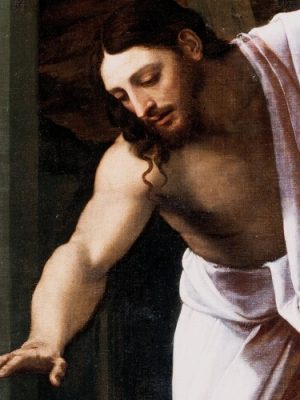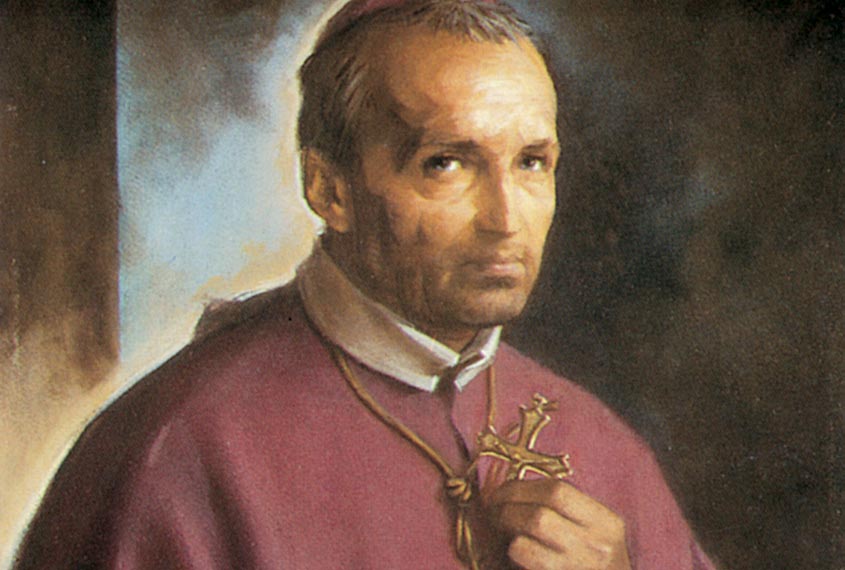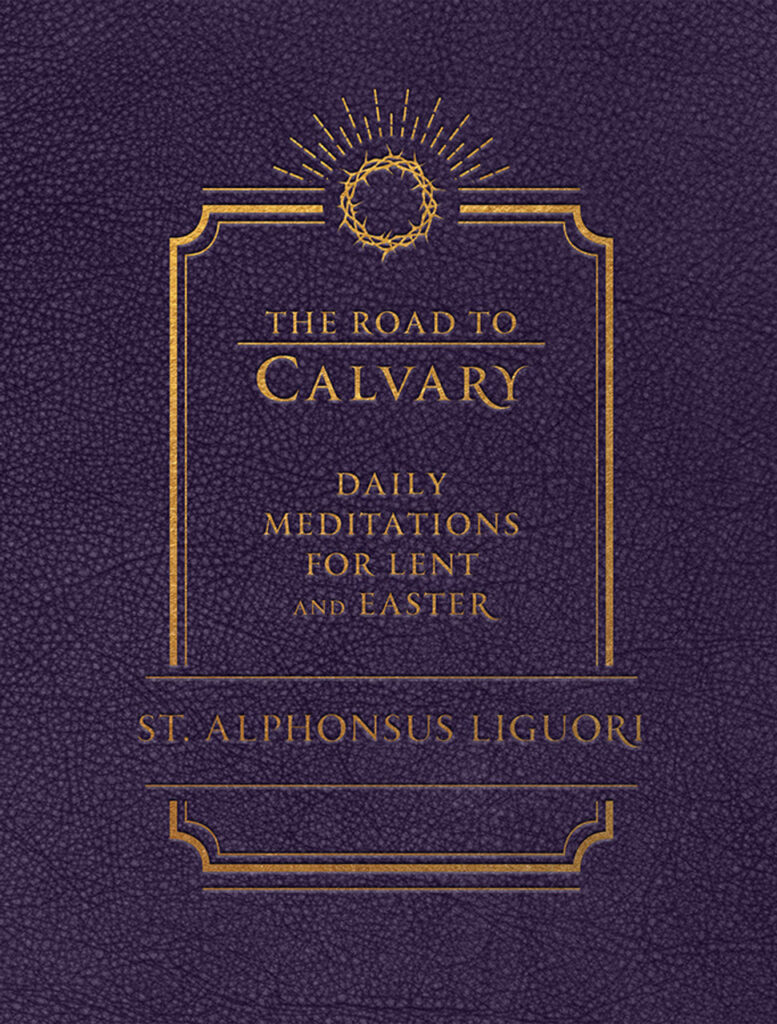The following is a compilation of excerpts taken from Saint Alphonsus Liguori’s, The Road to Calvary, reflecting on the interior sufferings of Our Lord. In this soul-stirring meditations, one of the Church’s most passion-filled writers explains the immeasurable sufferings Jesus Christ experienced, His desolate life, the cause of His suffering, and an exhortation to souls when they find themselves in desolation.
Jesus Christ Suffered from Birth
Hitherto, also, we have spoken only of the outward bodily pains of Jesus Christ. And who can ever explain and comprehend the inward pains of His soul, which a thousand times exceeded His outward pains? This inward torment was such that in the Garden of Gethsemane it caused a sweat of blood to pour forth from all His body, and compelled Him to say that this was enough to slay Him: My soul is sorrowful even unto death. And since this anguish was enough to cause death, why did He not die? Saint Thomas answers that He did not die because He Himself prevented His own death, being ready to preserve His life in order to give it in a while upon the tree of the cross. This sorrow also, which most deeply afflicted Jesus Christ in the garden, afflicted Him also throughout His whole life, since, from the first moment when He began to live, He had ever before His eyes the causes of His inward grief, among which the most afflicting was the sight of the ingratitude of men towards the love which He showed them in His passion.
A Sorrow That Could Not Quelled
Nevertheless, an angel came to comfort Him in the garden, as Saint Luke relates. Yet Venerable Bede says that this comfort, instead of lightening His pains, increased them. The angel, indeed, strengthened Him to endure with greater constancy for the salvation of men; upon which Bede remarks that Jesus was then strengthened for suffering, by a representation of the greatness of the fruits of His passion, without the least diminution of the greatness of His sufferings. Therefore the Evangelist relates that immediately after the appearance of the angel, Jesus Christ was in an agony and sweated blood in such abundance that it fell to the ground.
“Let This Cup Pass from Me”
Saint Bonaventure further relates that the agony of Jesus then reached its height so that our afflicted Lord, at the sight of the anguish that He must suffer at the termination of His life now come, was so terrified that He prayed His divine Father that He might be delivered from it: Father, if it be possible, let this cup pass from Me. Yet He said this, not that He might be delivered from the pains, for He had already offered Himself to suffer them—He was offered, because He Himself willed—but to teach us to understand the agony which He experienced in enduring this death so bitter to the senses; while in His will, in order to accomplish the will of His Father, in order to obtain for us the salvation He so ardently desired, He immediately added: Nevertheless, not as I will, but as You will. And He continued thus to pray and to resign Himself for the space of three hours: He prayed the third time, saying the same words.
The Desolate Life Of Jesus Christ
The life of our loving Redeemer was all full of desolation, and bereft of every comfort. The life of Jesus was that great ocean which was all bitter, without a single drop of sweetness or consolation: For great as the sea is your destruction. This is what was revealed by Our Lord to Saint Margaret of Cortona when He said to her that in His whole life He never experienced sensible consolation.
The sadness which He felt in the garden of Gethsemane was so great that it was sufficient to take away His life. My soul, He said, is sorrowful even unto death. This sadness afflicted Him not only in the garden but it always filled His soul with desolation from the first moment of His conception: for, all the pains and ignominies which He was to suffer until death were always present to Him
The Cause of Jesus’s Suffering
But the extreme affliction which He suffered during His whole life arose not so much from the knowledge of all the sufferings He was to endure in His life, and especially at death, as from the sight of all the sins which men would commit after His death. He came to abolish sin and to save souls from hell by His death, but after all His cruel sufferings, He saw all the sins which men would commit, and the sight of each sin, being clearly before His mind while He lived here below, was to Him, as Saint Bernadine of Sienna writes, a source of immense affliction. This was the sorrow which was always before His eyes, and kept Him always in desolation: My sorrow is continually before Me. Saint Thomas teaches that the sight of the sins of men, and of the multitude of souls that would bring themselves to perdition, excited in Jesus Christ a sorrow which surpassed the sorrow of all penitents, even of those who died of pure grief. The holy martyrs have suffered great torments; they have borne to be tortured with iron hooks, and nails, and red-hot plates, but God always sweetened their pains by interior consolations. But no martyrdom has been more painful than that of Jesus Christ; for His pain and sadness were pure, unmitigated pain and sorrow, without the smallest comfort.
Final Exhortation
When we are in desolation, let us console ourselves by the desolate death of Jesus Christ: let us offer Him our desolation in union with that which He, an innocent God, suffered on Calvary for the love of us.
ooo
This article is taken from a chapter in The Road to Calvary: Daily Meditations for Lent and Easter by Saint Alphonsus Liguori which is available from TAN Books.









